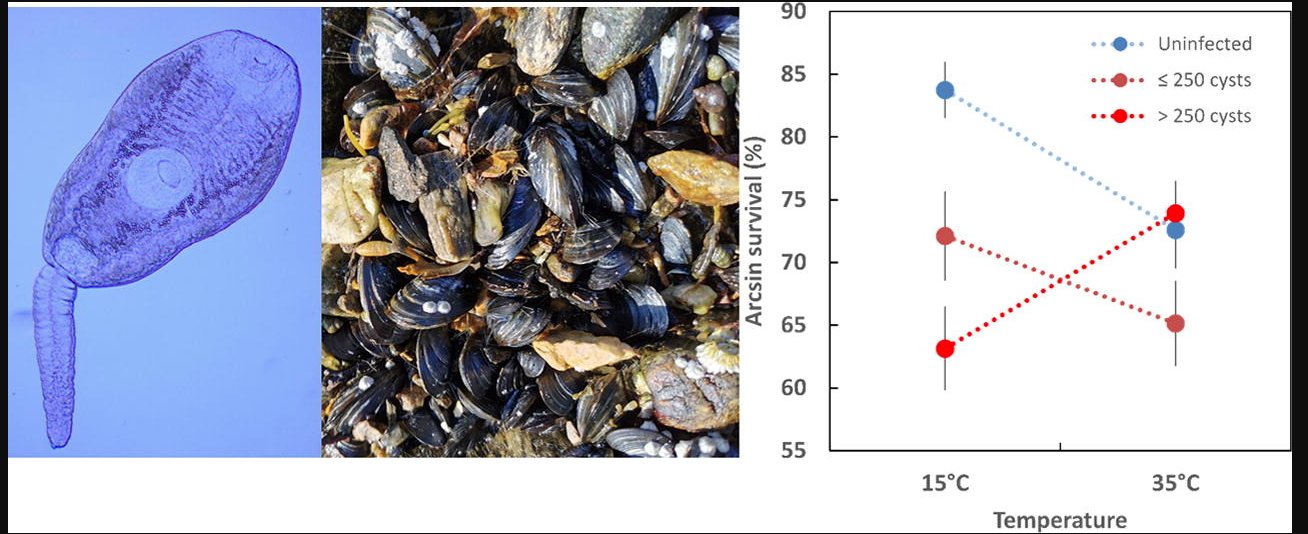Temperature–parasite interaction: do trematode infections protect against heat stress?
New publication by Christian Selbach, Martin Barsøe, Trine K. Vogensen, Anne B. Samsing, Kim N. Mouritsen

Abstract:
Blue mussels (Mytilus edulis) are important ecosystem engineers along Atlantic coastlines, where they are regularly subjected to rapid changes in temperature during the transition between tides. Global climate change and more frequent extreme weather events are expected to intensify this thermal stress even further. These increases in temperatures will not only affect intertidal mussels directly but also increase transmission dynamics of their parasites. Together, the effects of rises in temperature and parasitism will likely result in higher pressure on M. edulis and their ability to perform vital ecosystem services. In a set of experiments, we tested the effects of infections with the trematode Himasthla elongata and high temperatures during low tide air-exposure. Overall, we hypothesised that temperature and parasite infection intensity would each have significant negative effects on M. edulis survival, and that both stressors together would have a synergistic detrimental impact. Overall, high temperature levels had a strong negative effect on mussel survival. However, our results revealed a surprisingly more complex picture in infected individuals. While moderate parasite loads and increased temperature showed additive negative effects on mussel survival, high parasite infection intensities appeared to nullify the detrimental effects of temperature stress on mussels. Under climate warming, these benefits of parasites might actually outweigh the costs of infection and prove beneficial. Overall, these results suggest that the interactions between host–parasite systems and their changing environment are much more complex than a simple additive effect of multiple stressors.
